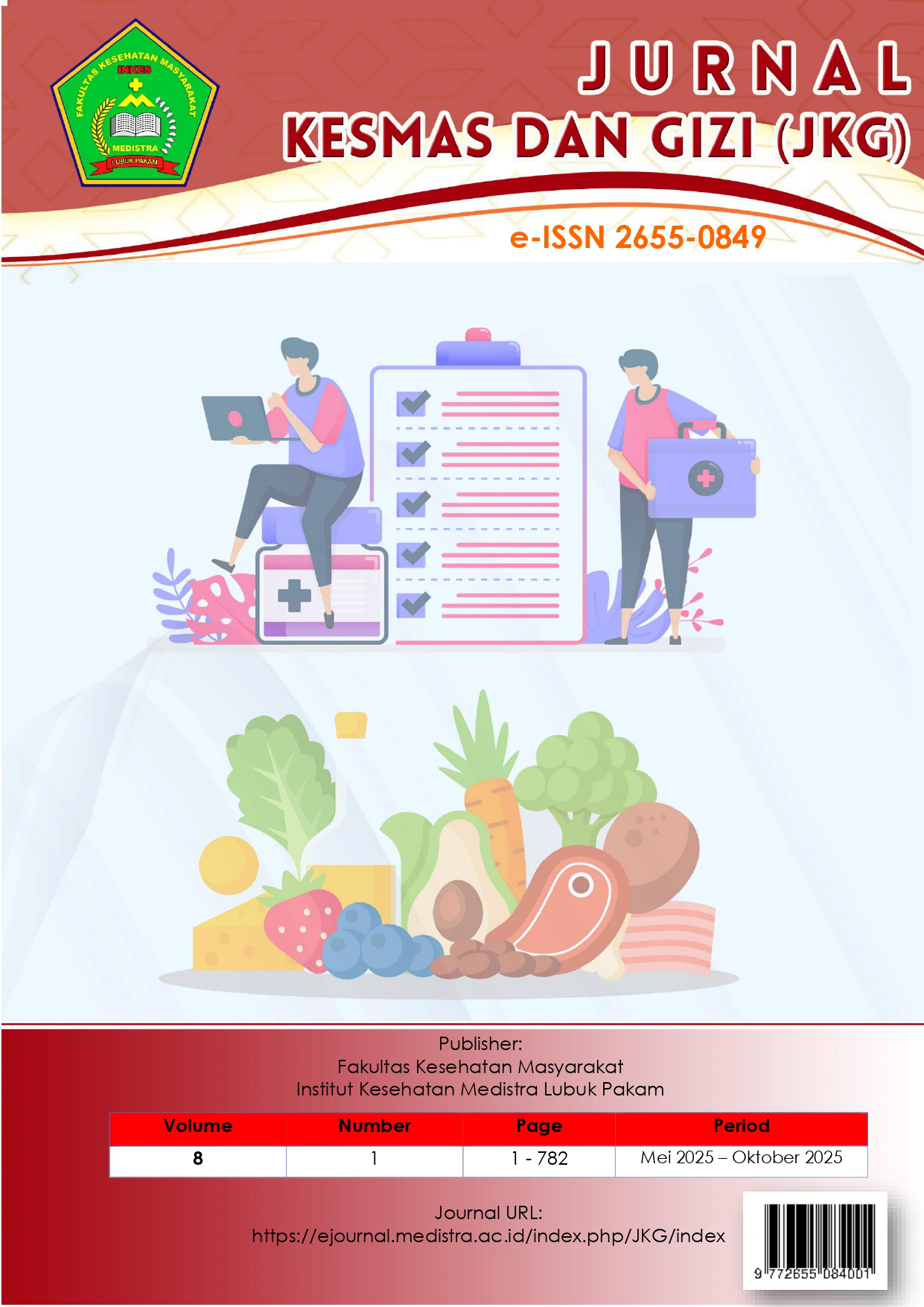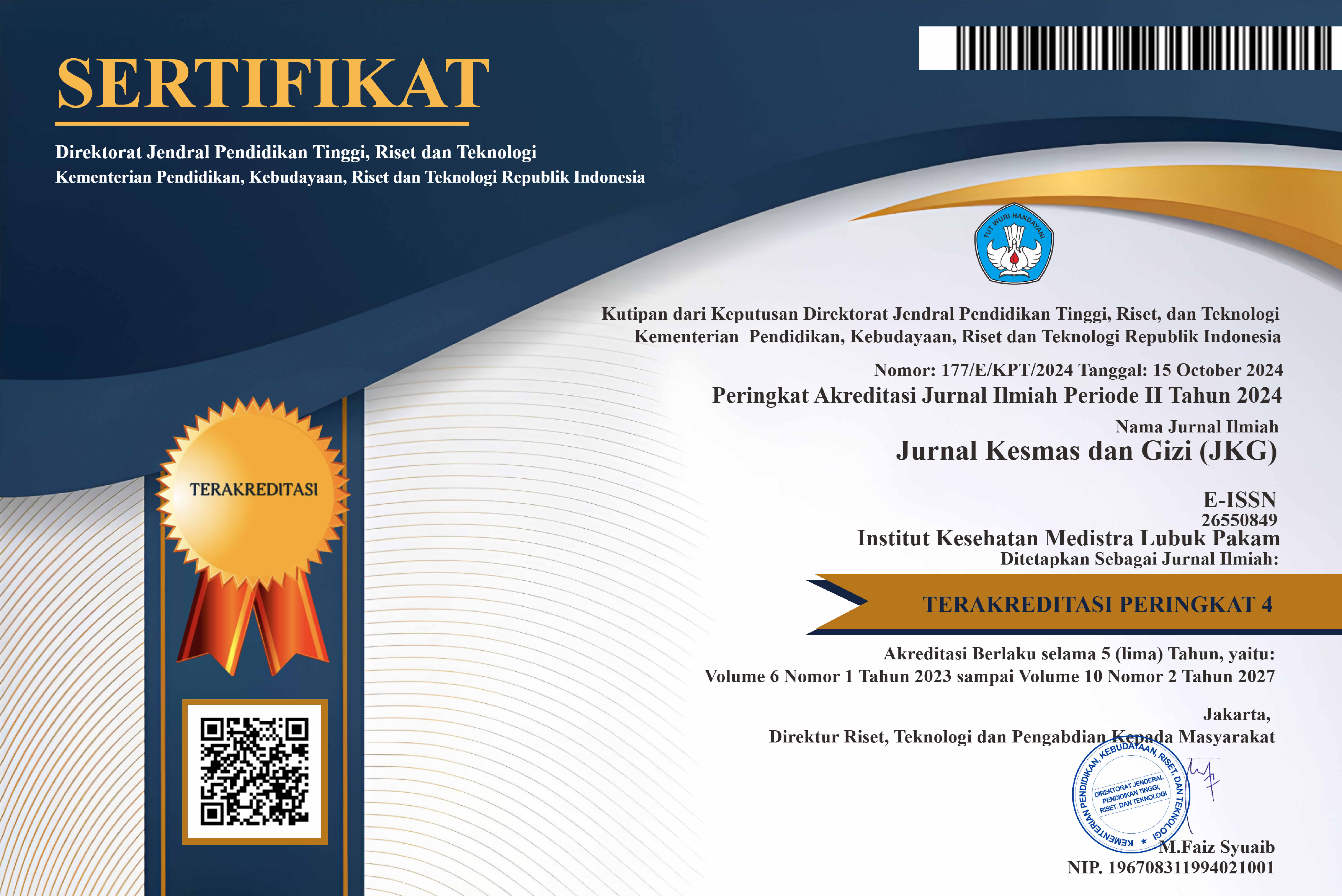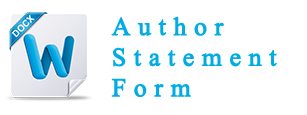Nutrition literacy in sports: exploring sport type-specific effect on ergogenic aids utilization
DOI:
https://doi.org/10.35451/rs7yg079Keywords:
Nutrition Literacy, Nutrition Knowledge, Sport, Athlete, ErgogenicAbstract
Introduction: The role of nutrition in athletic performance is crucial. However, the nutritional requirements and literacy levels vary among athletes across different sports disciplines and influenced by various factors. Aims: This study investigates how nutrition literacy varies among athletes in different sports, exploring the factors, and examines the correlation between athletes' nutrition literacy levels and their use of ergogenic aids. Methods: This study employed a systematic literature review following the PRISMA method. Conducting searches across databases Scopus and PubMed using keywords including "nutrition literacy", "nutrition knowledge", "athletes", "sports", and "ergogenic." Results: Total of 18 selected articles show that nutrition literacy involves understanding food and nutrition to make informed dietary decisions, crucial for overall health. Enhanced literacy leads to healthier behaviors, particularly important for athletes. Variations in nutrition literacy among athletes across different sports disciplines are crucial for performance and well-being. Coaching emphasis, sport-specific demands, athlete demographics, and supplement use contribute to these variations, highlighting the importance of tailored education programs. Understanding athletes' knowledge and utilization of these aids, as well as their dietary practices, offers valuable insights into optimizing athletes’ performance. Factors such as the type of sport, individual preferences, and the availability of nutritional information play crucial roles in shaping athletes' decisions regarding ergogenic aid use. Conclusion: The connection between athletes' nutrition literacy and their use of ergogenic aids underscores the importance of tailored education and personalized nutrition plans for optimizing performance and well-being in sports.
Downloads
References
[1] D. P. Makhija and M. Kukreja, "A Study on the Growth of Ecommerce Platforms for Sports Nutrition Products and Supplements," Interantional Journal of Scientific Research in Engineering and Management, vol. 07, no. 04, 2023, doi: 10.55041/ijsrem18994.
[2] C. C. Carey, L. Doyle, and A. Lucey, "Nutritional priorities, practices and preferences of athletes and active individuals in the context of new product development in the sports nutrition sector," Front Sports Act Living, vol. 5, p. 1088979, 2023, doi: 10.3389/fspor.2023.1088979.
[3] I. Kalkan, "The impact of nutrition literacy on the food habits among young adults in Turkey," Nutrition research and practice, vol. 13, no. 4, pp. 352-357, 2019.
[4] K. Wirnitzer et al., "Supplement Intake in Recreational Vegan, Vegetarian, and Omnivorous Endurance Runners-Results from the NURMI Study (Step 2)," (in eng), Nutrients, vol. 13, no. 8, Aug 10 2021, doi: 10.3390/nu13082741.
[5] T. F. Mathisen, R. S. Kumar, K. M. Svantorp-Tveiten, and J. Sundgot-Borgen, "Empowered, yet vulnerable: motives for sport participation, health correlates, and experience of sexual harassment in female combat-sport athletes," Sports, vol. 10, no. 5, p. 68, 2022.
[6] N. Grinberg, K. Benkhedda, J. Barber, A. D. Krahn, and S. La Vieille, "Effects of caffeinated energy drinks on cardiovascular responses during exercise in healthy adults: a systematic review and meta-analysis of randomized controlled trials," Appl Physiol Nutr Metab, vol. 47, no. 6, pp. 618-631, Jun 1 2022, doi: 10.1139/apnm-2021-0807.
[7] M. J. Page et al., "The PRISMA 2020 statement: an updated guideline for reporting systematic reviews," bmj, vol. 372, 2021.
[8] M. H. A. Banna et al., "The association between Bangladeshi adults’ demographics, personal beliefs, and nutrition literacy: evidence from a cross-sectional survey," Frontiers in Nutrition, vol. 9, p. 867926, 2022.
[9] A. Doustmohammadian, N. Omidvar, N. Keshavarz-Mohammadi, H. Eini-Zinab, M. Amini, and M. Abdollahi, "The association and mediation role of Food and Nutrition Literacy (FNLIT) with eating behaviors, academic achievement and overweight in 10-12 years old students: a structural equation modeling," Nutr J, vol. 21, no. 1, p. 45, Jul 1 2022, doi: 10.1186/s12937-022-00796-8.
[10] S. Liu, W. Zhou, J. Wang, B. Chen, G. He, and Y. Jia, "Association between mobile phone addiction index and sugar-sweetened food intake in medical college students stratified by sex from Shanghai, China," Nutrients, vol. 13, no. 7, p. 2256, 2021.
[11] P. Yarmohammadi, M. A. Morowatisharifabad, Z. Rahaei, S. S. Khayyatzadeh, and F. Madadizadeh, "Nutrition literacy and its related demographic factors among workers of Taraz Steel company, Chaharmahal and Bakhtiari, Iran," (in English), Frontiers in Public Health, vol. 10, p. 911619, Aug 12 2022, doi: ARTN 911619.10.3389/fpubh.2022.911619.
[12] K. Samruayruen and N. Kitreerawutiwong, "Exploration of the definition and components of food and nutrition literacy among junior secondary school students: a qualitative study," BMC nutrition, vol. 8, no. 1, p. 27, 2022.
[13] H. Matela, P. Panchal, S. S. Yadav, A. Muley, S. Medithi, and K. Menon, "A critical comparison of the Indian school food and nutrition guidelines with the WHO-nutrition friendly school initiative and the review of existing implementation scenario," Nutrition and Health, vol. 29, no. 1, pp. 47-59, 2023.
[14] N. Omidvar, A. Doustmohammadian, E. Shakibazadeh, C. C. Clark, M. S. Kasaii, and M. Hajigholam-Saryazdi, "Effects of school-based interventions on Food and Nutrition Literacy (FNLIT) in primary-school-age children: a systematic review," British Journal of Nutrition, vol. 129, no. 12, pp. 2102-2121, 2023.
[15] K. C. Stanley, P. B. Harrigan, E. L. Serrano, and V. I. Kraak, "A systematic scoping review of the literacy literature to develop a digital food and nutrition literacy model for low‐income adults to make healthy choices in the online food retail ecosystem to reduce obesity risk," Obesity Reviews, vol. 23, no. 4, p. e13414, 2022.
[16] T. F. Mathisen, C. Sundgot-Borgen, B. Anstensrud, and J. Sundgot-Borgen, "Intervention in professional dance students to increase mental health-and nutrition literacy: a controlled trial with follow up," Frontiers in sports and active living, vol. 4, p. 727048, 2022.
[17] D. J. Klein, K. M. Eck, A. J. Walker, J. K. Pellegrino, and D. J. Freidenreich, "Assessment of sport nutrition knowledge, dietary practices, and sources of nutrition information in NCAA division III collegiate athletes," Nutrients, vol. 13, no. 9, p. 2962, 2021.
[18] C. Lundqvist and G. Andersson, "Let's talk about mental health and mental disorders in elite sports: a narrative review of theoretical perspectives," Frontiers in psychology, vol. 12, p. 700829, 2021.
[19] C. Blennerhassett, L. R. McNaughton, L. Cronin, and S. A. Sparks, "Development and Implementation of a Nutrition Knowledge Questionnaire for Ultraendurance Athletes," Int J Sport Nutr Exerc Metab, vol. 29, no. 1, pp. 39-45, Jan 1 2019, doi: 10.1123/ijsnem.2017-0322.
[20] A. R. Jagim et al., "The influence of sport nutrition knowledge on body composition and perceptions of dietary requirements in collegiate athletes," Nutrients, vol. 13, no. 7, p. 2239, 2021.
[21] K. Vazquez-Espino, G. Rodas-Font, and A. Farran-Codina, "Sport Nutrition Knowledge, Attitudes, Sources of Information, and Dietary Habits of Sport-Team Athletes," (in eng), Nutrients, vol. 14, no. 7, Mar 23 2022, doi: 10.3390/nu14071345.
[22] A. J. Riviere et al., "Nutrition knowledge of collegiate athletes in the United States and the impact of sports dietitians on related outcomes: a narrative review," Nutrients, vol. 13, no. 6, p. 1772, 2021.
[23] M. Heikkilä, M. Lehtovirta, O. Autio, M. Fogelholm, and R. Valve, "The Impact of Nutrition Education Intervention with and Without a Mobile Phone Application on Nutrition Knowledge Among Young Endurance Athletes," (in English), Nutrients, vol. 11, no. 9, p. 2249, Sep 2019, doi: ARTN 2249.10.3390/nu11092249.
[24] J. M. Boumosleh, C. el Hage, and A. Farhat, "Sports nutrition knowledge and perceptions among professional basketball athletes and coaches in Lebanon-a cross-sectional study," (in English), Bmc Sports Science Medicine and Rehabilitation, vol. 13, no. 1, p. 53, May 17 2021, doi: ARTN 53.10.1186/s13102-021-00280-6.
[25] R. Jacob et al., "Determinants of coaches' intentions to provide different recommendations on sports nutrition to their athletes," (in English), Journal of the International Society of Sports Nutrition, vol. 16, no. 1, p. 57, Nov 27 2019, doi: ARTN 57.10.1186/s12970-019-0311-x.
[26] Y. Tsukahara, H. Kamada, S. Torii, H. Yamamoto, and F. Yamasawa, "Awareness and Knowledge of Medical Issues Related to Female Athletes Among Track and Field Coaches," (in eng), Open Access J Sports Med, vol. 14, pp. 9-19, 2023, doi: 10.2147/OAJSM.S403703.
[27] A. Gogojewicz, E. Sliwicka, and K. Durkalec-Michalski, "Assessment of Dietary Intake and Nutritional Status in CrossFit-Trained Individuals: A Descriptive Study," Int J Environ Res Public Health, vol. 17, no. 13, p. 4772, Jul 2 2020, doi: 10.3390/ijerph17134772.
[28] H. Mashuri, M. A. Mappaompo, and D. Purwanto, "Analysis of energy requirements and nutritional needs of rock climbing athletes," Journal Sport Area, vol. 7, no. 3, pp. 437-445, 2022.
[29] A. T. Amawi, D. S. Moualla, G. O. Alshuwaier, A. Alaqil, and L. S. S. Nemer, "Knowledge and attitude of dietary supplements among Arab Olympic athletes and coaches in preparation program for Tokyo 2020 Olympic games," 2022.
[30] M. Armour, K. A. Parry, K. Steel, and C. A. Smith, "Australian female athlete perceptions of the challenges associated with training and competing when menstrual symptoms are present," (in English), International Journal of Sports Science & Coaching, vol. 15, no. 3, pp. 316-323, Jun 2020, doi: Artn 1747954120916073.10.1177/1747954120916073.
[31] G. L. Trakman, A. Forsyth, R. Hoye, and R. Belski, "Australian team sports athletes prefer dietitians, the internet and nutritionists for sports nutrition information," (in eng), Nutr Diet, vol. 76, no. 4, pp. 428-437, Sep 2019, doi: 10.1111/1747-0080.12569.
[32] N. S. N. Azizam, S. N. Yusof, J. J. Amon, A. Ahmad, N. S. Safii, and N. A. Jamil, "Sports Nutrition and Food Knowledge among Malaysian University Athletes," (in English), Nutrients, vol. 14, no. 3, p. 572, Feb 2022, doi: ARTN 572.10.3390/nu14030572.
[33] D. Sekulic, E. Tahiraj, D. Maric, D. Olujic, A. Bianco, and P. Zaletel, "What drives athletes toward dietary supplement use: objective knowledge or self-perceived competence? Cross-sectional analysis of professional team-sport players from Southeastern Europe during the competitive season," Journal of the International Society of Sports Nutrition, vol. 16, no. 1, p. 25, 2019.
[34] D. R. Sunuwar, D. R. Singh, M. P. Bohara, V. Shrestha, K. Karki, and P. M. S. Pradhan, "Association of nutrition knowledge, practice, supplement use, and nutrient intake with strength performance among Taekwondo players in Nepal," (in eng), Front Nutr, vol. 9, p. 1004288, 2022, doi: 10.3389/fnut.2022.1004288.
[35] F. Carson, M. Blakey, S. J. Foulds, K. Hinck, and S. M. Hoffmann, "Behaviors and Actions of the Strength and Conditioning Coach in Fostering a Positive Coach-Athlete Relationship," J Strength Cond Res, vol. 36, no. 11, pp. 3256-3263, Nov 1 2022, doi: 10.1519/JSC.0000000000004073.
[36] P. Zaletel, "Knowledge and use of nutritional supplements in different dance disciplines," Facta Universitatis, Series: Physical Education and Sport, pp. 619-633, 2020.
[37] V. Gonzales-Krapp, V. Vento-Sime, K. V. Quiroz-Cornejo, and V. J. Samillan, "Optimización del Rendimiento Deportivo: Análisis del uso de ayudas nutricionales ergogénicas por atletas de élite representando al Perú a nivel internacional," Revista de Investigaciones de la Universidad Le Cordon Bleu, vol. 11, no. 1, pp. 53-64, 2024.
[38] E. Ferrada-Contreras, R. Bonomini-Gnutzmann, C. Jorquera-Aguilera, N. MacmiIlan Kuthe, H. Pena-Jorquera, and F. Rodriguez-Rodriguez, "Does co-supplementation with beetroot juice and other nutritional supplements positively impact sports performance?: a systematic review," Nutrients, vol. 15, no. 22, p. 4838, 2023.
[39] M. Ş. K. Ermumcu and D. Saçlı, "Farklı Spor Branşlarıyla Uğraşan Sporcularda Beslenme Durumu, Diyet Kalitesi ve Besinsel Ergojenik Destek Kullanımlarının Değerlendirilmesi," İzmir Katip Çelebi Üniversitesi Sağlık Bilimleri Fakültesi Dergisi, vol. 8, no. 3, pp. 955-962, 2023.
[40] B. Wax, C. M. Kerksick, A. R. Jagim, J. J. Mayo, B. C. Lyons, and R. B. Kreider, "Creatine for Exercise and Sports Performance, with Recovery Considerations for Healthy Populations," (in eng), Nutrients, vol. 13, no. 6, Jun 2 2021, doi: 10.3390/nu13061915.
[41] A. Viribay, J. Burgos, J. Fernandez-Landa, J. Seco-Calvo, and J. Mielgo-Ayuso, "Effects of Arginine Supplementation on Athletic Performance Based on Energy Metabolism: A Systematic Review and Meta-Analysis," (in eng), Nutrients, vol. 12, no. 5, May 2 2020, doi: 10.3390/nu12051300.
[42] S. Delleli et al., "Acute Effects of Caffeine Supplementation on Physical Performance, Physiological Responses, Perceived Exertion, and Technical-Tactical Skills in Combat Sports: A Systematic Review and Meta-Analysis," Nutrients, vol. 14, no. 14, p. 2996, Jul 21 2022, doi: 10.3390/nu14142996.
[43] N. Vicente-Salar, E. Fuster-Munoz, and A. Martinez-Rodriguez, "Nutritional Ergogenic Aids in Combat Sports: A Systematic Review and Meta-Analysis," (in eng), Nutrients, vol. 14, no. 13, Jun 22 2022, doi: 10.3390/nu14132588.
[44] C. P. Wong, "A Review of Honey Supplementation on Endurance Performance in Athletes," Journal of Medicine and Healthcare, vol. 2, no. 4, pp. 1-3, 2020, doi: http://dx.doi.org/10.47363/JMHC/2020(2)132.
[45] N. S. Guest, J. Horne, S. M. Vanderhout, and A. El-Sohemy, "Sport Nutrigenomics: Personalized Nutrition for Athletic Performance," Front Nutr, vol. 6, p. 8, 2019, doi: 10.3389/fnut.2019.00008.
Downloads
Published
Issue
Section
License
Copyright (c) 2025 Prima Amanda Khairunnisa, Dr. Emyr Reisha Isaura, Diandra Puspita Sari

This work is licensed under a Creative Commons Attribution 4.0 International License.
Copyright in each article is the property of the Author.



























